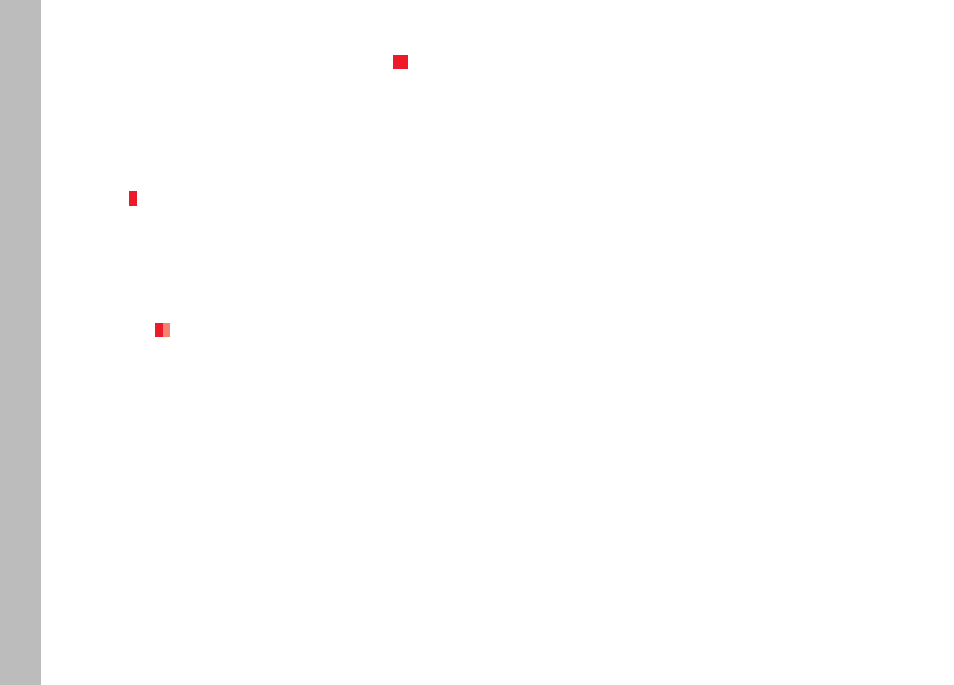LEICA SF 40 Flash User Manual
Page 46

EN
44
SLIP-ON DIFFUSION ATTACHMENT
The slip-on di
ff
usion attachment in the delivery scope
11
creates a
much wider and softer distribution of the light emitted. You can use
this for shots of subjects from a short distance, for example, or to
avoid hard shadows.
Attaching/removing
1. Align the slip-on di
ff
usion attachment parallel to the reflector
head
1
and with its slanting back parallel to the front of the
reflector head, and push on as far as it will go
To remove, hold on both sides and pull o
ff
.
Note:
The slip-on di
ff
usion attachment can be used together with the
reflector card
1b
.
Shot format
In some digital cameras, the flash unit can adapt the focal length
display for the reflector position to the taking format (= sensor
format).
This function presupposes cameras that transmit the focal length
information to the flash unit.
AF AUXILIARY LAMP
The autofocus measuring systems of cameras depend on contrast
on the subject. If the contrast is too low due to insu
ffi
cient
brightness, these cameras will switch on an AF auxiliary lamp.
When the flash unit is attached and with a camera with the
appropriate specifications, the AF auxiliary lamp in the flash unit is
activated. This projects a striped pattern onto the subject that the
camera then uses for focusing.
The range is approx. 0.7 to 5
m (with 50
mm lens).
So that the AF auxiliary lamp can be activated by the camera, the
autofocus mode "Single AF (S-AF)" must be set on the camera and
the flash unit must indicate that it is ready to flash.
Some camera types only support the camera's internal AF auxiliary
lamp. In such cases, the flash unit's AF auxiliary lamp is not
activated (s. camera instructions).
Notes:
• Slower lenses (largest aperture
≥
5.6) sometimes greatly restrict
the range of the AF auxiliary lamp.
• At short distances from the subject in conjunction with lenses of
longer lengths, the AF auxiliary lamp may be switched o
ff
. In
such cases, AF operation is not possible.
